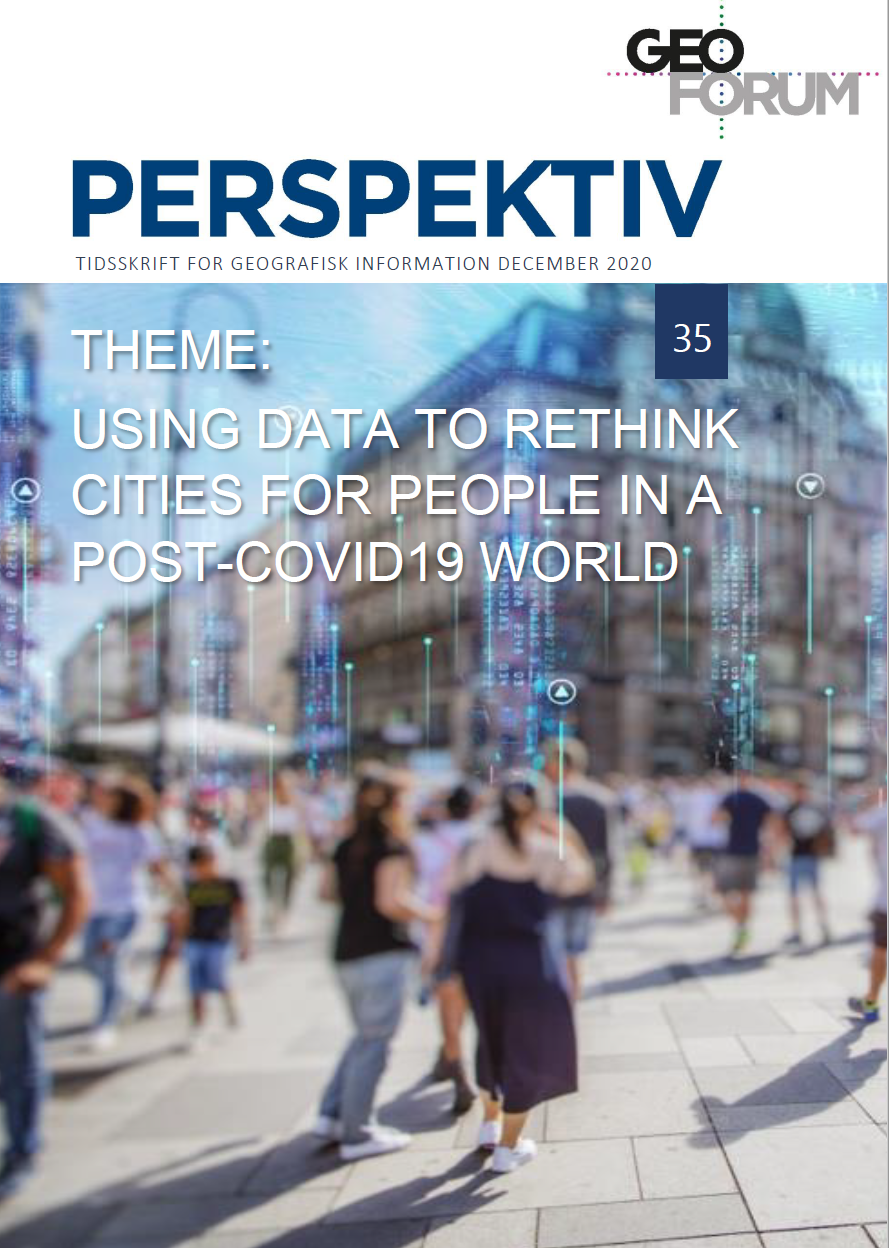Learnings from public life in order to rethink post-corona cities
A human-centered approach to the use of data in urban planning
DOI:
https://doi.org/10.5278/ojs.perspektiv.v19i35.6425Abstract
The outbreak of the COVID-19 pandemic has profoundly impacted cities around the world and raised fundamental questions about urban development.
How do we better upgrade infrastructure? How do we ensure affordability? How do we protect and restore open and green areas? And how do we enhance overall livability for all?
It’s clear that the coronavirus will have, and is already having, a profound effect on how we answer those questions and the overall direction that today’s and the built environment of the future will take. Learning from the use of public space during the pandemic, has shown us the need for rethinking across content how to better create health promoting cities for everyone. From this perspective, this article focuses on the imperative role of collecting and analysing ‘thick data’, qualitative information that can reveal social context and a deeper understanding about how people’s behaviour has been impacted in a time of crisis.
Downloads
Published
Issue
Section
License
Authors publishing on Geoforum Perspektiv retain full but non-exclusive rights in their articles, and are required to use the Creative Commons license CC by-nc 4.0 when submitting their work.





